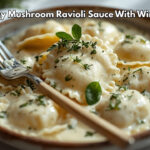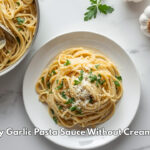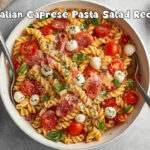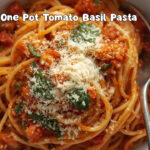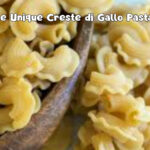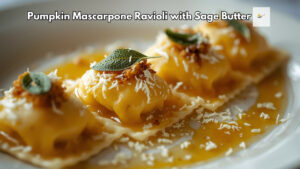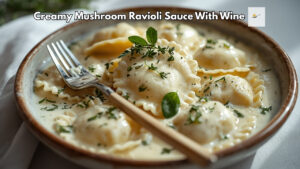Table of Contents
ToggleRicotta vs cream cheese is a common comparison, especially when you’re selecting which one to use in a recipe. Both are super versatile, but they bring different tastes and experiences to the table. The smooth thickness of cream cheese is perfect for creamy dishes like cheesecakes or dips. Ricotta, on the other hand, is light and fluffier, and it works great for delicate textures like stuffed pasta or light desserts.
Sometimes, you might wonder during cooking which one you should use instead of the other. Don’t worry!
In this post, we’ll break down the differences between Ricotta vs Cream cheese, including taste, texture, nutrition and which one’s better for which dish. Let’s dive in!
Comparing Ricotta Vs Cream Cheese
Upon looking, they might look similar, but there are some key differences in texture, fat content, and the making procedure. These differences set them apart:
- Ricotta is made from whey, the leftover liquid after making different cheeses. It’s low in fat (around 11% in American ricotta) with a grainy, slightly crumbly texture.
- Cream Cheese, on the other hand, is made with a mixture of whole milk and cream, originating from the United States. It has a much richer texture and a higher fat content (at least 33%). It’s smooth, spreadable, and can be used in both sweet and savoury dishes.
- Despite these differences, both cheeses have a slight sweetness and are usually unsalted.
What Is Ricotta Cheese?

Traditionally, ricotta is made from the whey, the leftover after making other cheeses. “The whey is heated to form tiny, low-fat cheese curds, and this process is called “recooking“. Its strained form can be served fresh or aged for a few months.
Ricotta can be made from the milk of different animals. However, in the U.S., it’s typically made from cow’s milk. American ricotta has a higher fat content than traditional ricotta, which is still much lower than cream cheese.
What Is Cream Cheese?

Cream cheese is made from a mixture of whole milk and cream, which gives a rich, smooth texture and higher fat content. It’s thick, easily spreadable, and often used in baked dishes, dips, or as a topping. The addition of thickening agents like carob bean gum or carrageenan makes it smoother and more even than ricotta.
Key Differences Between Ricotta and Cream Cheese
Production Process
Ricotta and Cream cheese are made with different processes, and for that reason, they have their unique textures and flavours.
Ricotta is made from leftover whey already used in making other cheeses. Ricotta is made using any animal’s milk, like cow’s, sheep’s, or buffalo’s milk. Milk is heated, and while heating, casein is mixed in to activate coagulation. During the process, curds form, and they’re strained to create the soft, fluffy texture of ricotta. It’s usually eaten fresh; however, some can be aged up to two months.
As Ricotta is made with different types of milk, the fat content can vary, but in any case, it is much lower compared to cream cheese.
On the other hand, Cream cheese is made from pasteurised milk and heavy cream. In the cream cheese making process, lactic bacteria are added to the milk and cream, which helps to separate the whey. Then it’s heated, blended, until it turns into a smooth, thick spread. There is a need for ageing, it’s ready to eat right away.
Moisture Content
Ricotta is watery, with up to 80% moisture content. This moisture helps in keeping the curds soft and also protects the ricotta cheese from drying out faster.
Cream cheese is solid and thicker than Ricotta, usually with around 55% moisture content. This lower moisture provides a firmer consistency.
Pro Tip: If you’re baking something like a cheesecake, where moisture matters, cream cheese may work better. But if you want to maintain the lightness of a dish, ricotta is your go-to.
Fat Content
All types of Ricotta have much less fat, around 11%. But traditional ricotta has less fat, between 6-10%.
Cream cheese has at least 33% fat content, which gives it a rich, creamy flavour.
Pro Tip: Ricotta goes well for a lighter option, but if you want to bring richness to the dishes, cream cheese is the winner.
Texture
Ricotta has a grainy texture that helps in whipping to make it smoother, but it still tends to have a crumbly feel.
Whereas, Cream cheese is much smoother and easier to spread due to the creaminess and thickening agents.
Pro Tip: Ricotta is best if you crave a slightly chunkier and rustic feel. For a creamy, smooth texture, go with cream cheese.
Nutritional Facts
Ricotta is lower in fat than cream cheese but still high in calories and packed with nutrients. It contains a wide range of vitamins like A, B-complex, E, K, and folate and is rich in minerals like calcium, zinc, iron, and magnesium. It also has omega-3 and omega-6 fatty acids, which make it easier to digest due to lower lactose levels.
Cream cheese is around 35% high in fat and calories. While it’s lower in sugar and carbs, making it a decent option for individuals who follow low-carb diets. It’s not very rich in nutrients and has small amounts of vitamin A, K, folate, and some minerals like calcium, magnesium, and selenium. Comparing cream cheese to butter or heavy cream, it’s a healthier option, but regular consumption can increase cholesterol and the risk of heart issues or diabetes. It is recommended to enjoy it occasionally in moderation.
Uses
Ricotta cheese is lighter and gives a fresher feel when added to smoothies, omelettes, salads, or light pasta dishes. But moisture can change the texture of some dishes, so it’s best to use it in recipes where a softer consistency is required.
Cream cheese has a thick, creamy texture and is super versatile. It works great in cheesecakes, dips, sauces, omelettes, or even as a topping for baked dishes where you want extra creaminess. Its mild flavour makes it easy to use in both sweet and savoury recipes.
Can You Substitute Ricotta for Cream Cheese?
Yes, you can swap ricotta for cream cheese, but in both flavours and texture are different. Cream cheese has a richer, deeper taste, while ricotta is milder and has a neutral flavour. If you are running short of ricotta and have cream cheese, you may need to adjust the flavour by adding more seasoning or sweetener.
Nutritional Comparison: Ricotta Vs Cream Cheese

Can You Use Ricotta for Cheesecake?
Ricotta can be used in a cheesecake, especially if you’re making a no-bake version. However, because ricotta has a crumbly and grainy texture, you’ll need some whipped cream or a bit of heavy cream to bind the filling together.
If you’re baking cheesecake, adding more egg yolks helps to balance out the texture and enhance the flavour. Using Ricotta won’t give you the same rich, velvety finish as cream cheese, but it can still be delicious.
Is lasagna better with ricotta or cream cheese?
When it comes to lasagna, ricotta cheese works best. Its mild flavour and higher moisture makes the perfect cheesy layer in lasagna. Cream cheese is thick, fattier and drier, which can make your lasagna dish too heavy.
Pro Tip: If you want to use cream cheese, make sure to thin it with a bit of milk and reduce the amount of mozzarella using the recipe.
Is Mascarpone Like Ricotta?

Mascarpone is a whole different cheese! It’s made purely from cream, which has a smooth, creamy texture and a higher fat content (at least 50%). It’s more like cream cheese than ricotta, and also classified as a semi-soft cheese by the FDA.
Ricotta vs cream cheese, which is better with savoury dishes?
Cream cheese creates richness and velvety smoothness to dips, spreads, and pasta sauces; it melts beautifully into recipes. Ricotta brings a light, fluffy texture and mild flavour to savoury dishes like lasagna, stuffed shells, and ravioli fillings.
Frequently Asked Questions
How should I store Cream Cheese and Ricotta Cheese?
Store both cream cheese and ricotta in the fridge for a longer shelf life. Cream cheese keeps longer because of its higher fat content, while ricotta is best enjoyed within 5 to 7 days after opening.
Do ricotta and cream cheese taste the same?
No, cream cheese is rich and tangy, best for savoury dishes, while ricotta is milder with a hint of sweetness.
Does ricotta taste like mozzarella?
Mozzarella has a classic cheesy, milky, slightly salty taste and smooth texture. Ricotta has a nutty flavour with a thick, creamier texture. Both are delicious and pair beautifully with many dishes.
Is ricotta similar to paneer?
Paneer is pressed for hours to drain the whey, which makes its texture firmer. Ricotta is soft and has a creamier texture; it is strained briefly without pushing, so it holds whey than paneer.
Final Thoughts
So the best one between ricotta vs cream cheese for your dish depends on what you’re making. Both have their unique qualities; choose your cheese based on the texture and flavour you want. Next time, don’t be afraid to experiment! Keep following pastasphere.com to learn more about interesting insights.





